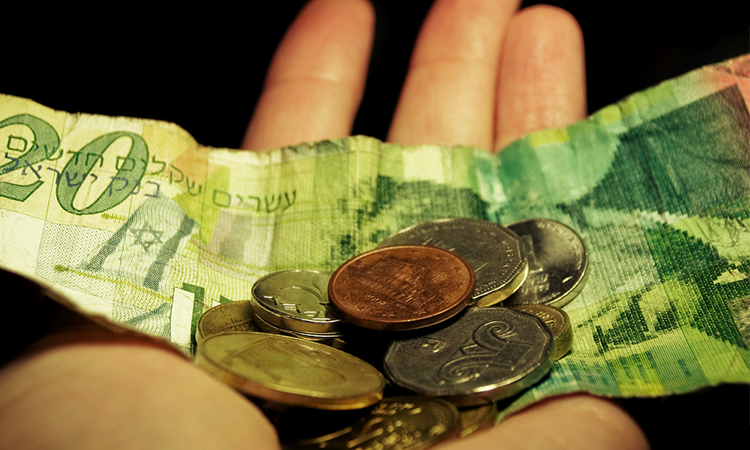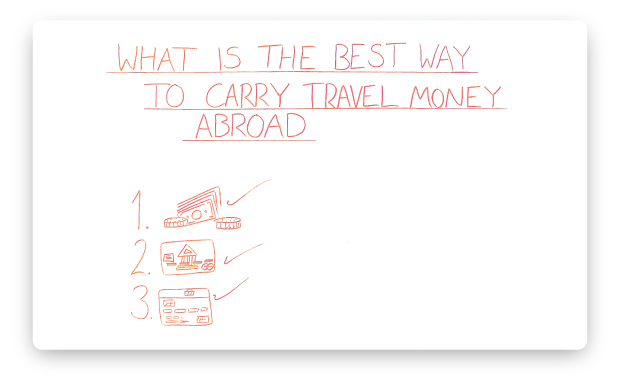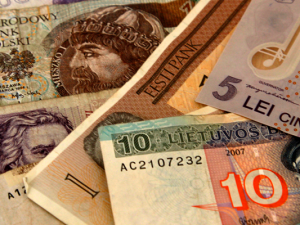
When travelling abroad, there can be a number of factors that might affect how you decide to carry your travel money. When travelling to North Africa for a two week getaway, you might want to take cash, convenient when haggling and making small payments at cafes. Maybe you are inter-railing round Europe for a couple of months, in which case a prepaid currency card may be the better option to avoid overspending and keep your money secure. This video outlines the pros and cons for the most popular forms of travel money, so you can make an informed decision on what’s best for you.
Hi there and welcome to another episode of MyTravelMoneyTV. No matter where you are travelling to or how long for, you will want to consider the smartest and safest way of carrying your money around with you whether it be in the form of cash, credit cards or prepaid currency cards. The truth is that there a number of pros and cons for each type, depending on some determining factors.

In today’s episode, we will outline some of the best ways you can travel with your money so you can make and informed decision on the type that is best suited for your trip.
Cash
This tends to be a very convenient method as providing you have the correct currency, you can use it anywhere in the world.
So what are the pros?
- Getting cash is quick and fast, and when ordered online you take advantage of markups as low as 1% giving you a better deal on your currency. Next day delivery means you have more time to spend on packing without worrying about picking up the cash elsewhere.
- Most countries have bureau de changes dotted around for quick conversion if you are running short, even in rural areas.
- Cash is convenient for small payments, such as parking if you’ve hired a car or haggling in places like Morocco.
Sounds great so what are the Cons?
- You need to be careful on where you choose to buy your currency. Banks and Airports can apply markups of up to 10% but this can be avoided by buying online with markups of only 1-3% added. It is also a good rule of thumb to know that 0% Commission advertised at Bureau de Change are a myth and should largely be ignored. Banks and businesses aren’t in the market to give away free currency and it is simply a marketing gimmick.
- Travelling with a large amount can be dangerous and should be avoided in high crime countries and cities so always be sure to budget for your daily trips and leave the rest of your cash in a hotel safe.
Credit Cards
Ideal for large purchases such as airline tickets, hotel bills and car rentals but again are subject to pros and cons.
- Credit card purchases are exchanged at the inter-bank exchange rate, usually the cheapest rate you can get for currency exchange.
- You don’t need to be concerned with having to handle large amount of cash which makes it a safer and more secure alternative.
- Visas and Mastercards can be used in almost any country which can save a lot of time and effort.
So what are the Cons?
- On the downside, some places won’t take credit cards particularly in small villages and rural places so you will need to research availability of credit card payments before you travel.
- If you do need cash for small payments, you will be subject to very high ATM charges to get cash advances with credit cards, sometimes charging international withdrawal rates of up to 5%.
- You will need to be stay on top of monthly bill payments so not great if you’re going on a long trip or a gap year.
Top Tip: Don’t forget, if you’re going abroad and taking your credit or card, it is always important to make sure you let your bank or provider known when and where you are going as international activity can set off a fraud alert and block your card.
Prepaid Currency Cards
A very popular and smart way of carrying your currency particularly if you are travelling around the US or Eurozone.
Pros
- Prepaid currency cards are as convenient as credit card but have the bonus of not being able to go over your prepaid amount so you can budget better.
- They allow you to be smart and load your card when exchange rates are at their best enabling you to get a better deal on your currency.
- The cards are widely accepted and Euro Currency Cards are great if travelling around Europe as are US Dollar Cards when making trips around the States.
Cons
- Occasional inactivity and application fees of up £10 sometimes apply but these are one-off and will add up to less than international credit card fees.
So we hope that this video has given you an insight in to the options available when travelling abroad, and you have a better understanding of which form of currency is best suited for your trip.
Be sure to follow us on Twitter @mytravelmoneyUK for the latest travel news and tips or reach out to me at [email protected]
Written by Sofia Kluge on Google+







